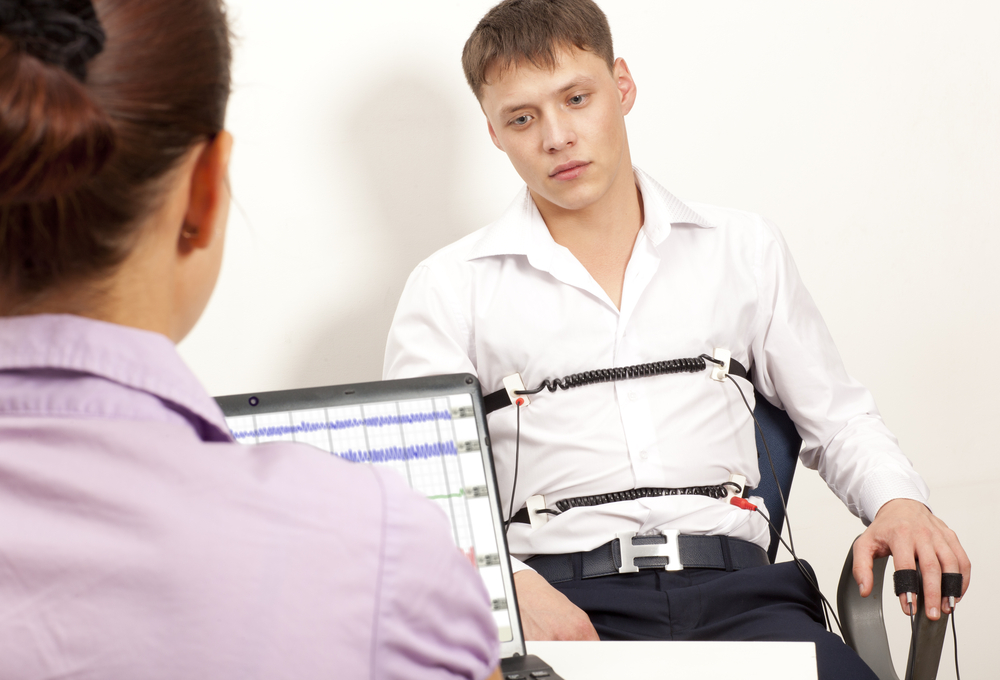In 1998, the U.S. Supreme Court banned from courtroom evidence most results from lie-detector tests because those polygraph exams are scientifically flawed and unreliable, a ruling the American Psychological Association concurred with.

Courtesy of University of Nevada, Reno
Laura Pazos
Not a total ban, though, the ruling allowed polygraph results to remain in use during pre-trial evidentiary hearings to determine bail; and in adult court cases where both the plaintiff and defendant agree that those results can be submitted as evidence.
However, in juvenile courts, where judges still have the discretion to allow or ban such so-called evidence, polygraphs have been used to coerce some juvenile sex offenders into making what researchers concluded were false confessions.
The misuse doesn’t end there. As youth who’ve been determined guilty of a sexual offense undergo what often is court-ordered clinical treatment, polygraphs are sometimes employed to get them to confess to additional offenses that never were adjudicated in juvenile court. That practice is designed to increase offenders’ sense of accountability for their real and supposed crimes. And although that practice often aims to increase the efficacy of treatment, it amounts to an ethically questionable and needless form of coercion that might lead to even more false confessions.

Courtesy of University of Nevada, Reno
Shawn Marsh
Juveniles are vulnerable to internalizing the false confession and adopting it as a false memory. Because they start believing they perpetrated events that never happened, a falsely confessing youth can wind up wrongfully charged with and convicted of additional crimes.
Decades ago, some researchers concluded that this practice was the best method for clinicians and, by extension, juvenile justice workers, to find out if sex offenders had perpetrated more sexual assaults. Knowing that history, it’s been argued, would not only raise youths’ accountability for what they did, it also would sharpen their awareness and empathy for their victims and reduce juvenile sex offender recidivism. We are convinced that the scientific evidence now clearly suggests otherwise.
Judges shouldn’t follow potentially faulty, human instincts
In the juvenile justice system, the adage “honesty is the best policy” meets a stark reality: Discerning truth from fiction is daunting for everyone involved, including judges. Some rely on inherently faulty polygraphs. Some rely on instincts, their own methods to detect deception by monitoring defendants’ seeming disposition, level of eye contact or whether they sweat or fidget. Judges might let their interpretations of nonverbal behaviors guide their decisions on a juvenile defendant’s credibility, despite research suggesting those biological and physical responses are less accurate.
Many juveniles either defer to or challenge power amid what can be a courtroom proceeding that adds to the trauma of their lived experiences and even of the crimes they’ve committed. They may give off cues that some might read as indicative of lying, when, being overly defensive or callous actually can be self-protective reactions.
In light of those facts, judges must remember that, fundamentally, they are human beings. They are no better than chance at detecting lies.
Polygraphs fuel stress and its outward symptoms
Although polygraphs are often used to discern credibility and veracity, they can only measure and record such physiological symptoms as sweating, quickened breathing and pulse rates. Those are understandable responses to the anxiety-inducing questions asked during polygraph tests. The underlying premise of these tests is that deceptive answers will provoke physical reactions that can subsequently be measured and interpreted. However, as far back as the late 1960s, several researchers have suggested that there are no known physiological responses that are unique to lying or telling the truth. Those conclusions call into question the very theory on which polygraph results are based.
Adding to this complexity is the fact that many judges, who are tasked with deciding on the admissibility of polygraph evidence, may not be adequately trained or up-to-date on the extensive research about polygraphs or alternatives to them. That knowledge gap can lead to inconsistent, poorly reasoned rulings and potentially flawed interpretations of polygraph results. The scientific community’s consensus on the limitations of polygraph tests contrasts starkly with the understanding and application of such evidence in courts, highlighting a crucial gap in judicial education and a need to reform judicial practice.
Replacing ‘junk science’ with more reliable alternatives
Juvenile courts should stop relying on this junk science and replace it with more reliable, evidence-based approaches. Courts should incorporate cognitive interviews, which are structured, in-depth inquisitions for gathering evidence; and validity analyses, which evaluate truthfulness in context of a totality of evidence. Those tools assess truthfulness far better than polygraph results.
[Related: Breaking walls, building bridges: A call for restorative justice in school discipline]
Polygraphs are not the solution. The juvenile justice system must do its best to engage in thoughtful consideration using the full range of the evidence presented coupled, when possible, with testimony from witnesses and other collateral confirmation, and with adequate decision-making time to reduce stress on both the juveniles and on the judges who decide juvenile cases.
When they rely on polygraphs or their own instincts, judges’ decisions are too subjective. Those decisions can be wrong. They reflect a larger failing of the justice system: the lack of effective, consistently used tools for assessing the credibility of juveniles and their testimony.
***
University of Nevada at Reno social psychology doctoral student Laura Pazos and social psychologist Shawn Marsh, director of the university’s judicial studies program, are researching how juvenile justice systems assess the credibility of juvenile testimony.
































